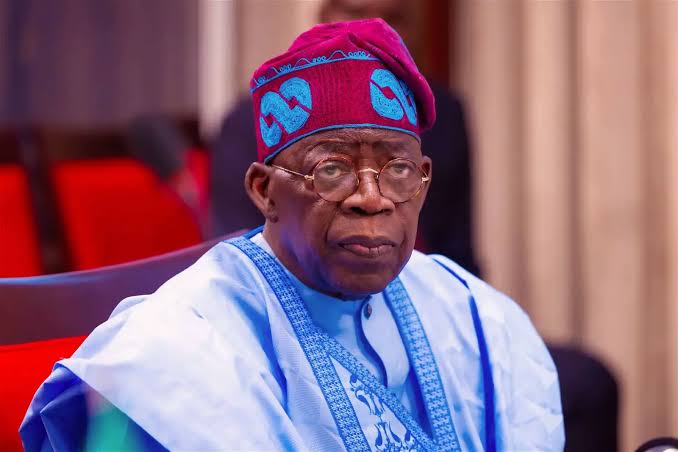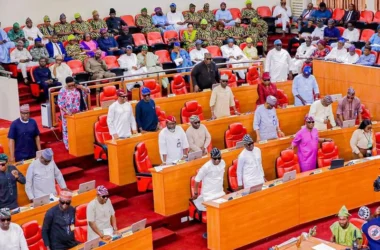President Bola Tinubu has granted approval for the Nigerian National Petroleum Company (NNPC) Ltd to use the 2023 final dividends due to the federation to help offset the nation’s petrol subsidy bill. The decision was made to ease the financial burden that the NNPC has faced in recent months due to the escalating costs of fuel subsidies.
According to The Cable, the approval also includes the suspension of the 2024 interim dividend payments to the federation, allowing the NNPC to maintain a more stable cash flow during this critical period. As part of this arrangement, the national oil company will be unable to remit taxes and royalties to the federation account for the time being, citing the subsidy payments as the reason for this shortfall. This was explained as a result of what the NNPC termed the “subsidy shortfall/FX differential.”
According to internal forecasts, the NNPC expects that the cumulative cost of the petrol subsidy will reach a staggering N6.884 trillion by December 2024. This projection paints a grim picture for the country’s financial outlook, as it also reveals that NNPC will be unable to remit approximately N3.987 trillion in taxes and royalties to the federation account during this period.
Despite the approval from President Tinubu, the total amount of dividends that will be withheld or suspended remains uncertain. However, the NNPC is expected to halt the payment of interim dividends from May to December 2024, which typically are remitted monthly into the federation account and distributed among the three tiers of government. Final dividends are usually paid at the end of the year after proper reconciliation of accounts.
Under the Petroleum Industry Act (PIA), the NNPC is obligated to pay both taxes and royalties, in addition to dividends, to the federation, which remains its sole shareholder. However, the mounting costs associated with the petrol subsidy have made it increasingly difficult for the national oil company to fulfill these obligations.
The NNPC’s financial difficulties are largely attributed to the high costs of importing fuel, exacerbated by fluctuating exchange rates and the persistent pressure on the naira. In June 2024, the NNPC raised concerns to President Tinubu, warning that its cash flow was being severely impacted by the subsidy payments. The company even admitted that it might not be able to continue importing petrol if the situation did not improve, blaming the issue largely on “forex pressure.”
The group CEO of NNPC, Mele Kyari, explained that after the subsidy was initially removed in June 2023, the federation was able to save N400 billion monthly. This allowed NNPC to remit taxes and royalties amounting to N2.032 trillion to a dedicated account at the Central Bank of Nigeria (CBN) by January 2024. However, the rapid devaluation of the naira quickly eroded those gains, pushing the NNPC back into financial trouble.
By August 2023, the NNPC’s fuel importation costs had shifted from surplus to deficit, with the subsidy bill rising from N52.73 billion in August to N833.68 billion by April 2024. This steep increase was driven by the devaluation of the naira, which saw the exchange rate more than double since the initial removal of the subsidy.
Kyari stressed that despite various efforts to stabilize the company’s finances, including strategies like boosting oil production, rescheduling debts, deferring non-essential projects, and recovering outstanding debts, the NNPC continues to face growing cash flow deficits.
The government’s response to the situation has sparked discussions about the terminology used to describe the subsidy payments. When the idea of reintroducing the petrol subsidy was first floated in August 2023, the presidency quickly denied the claim, reiterating that the subsidy had been eliminated. However, official communications between the NNPC and the presidency now freely refer to the payments as “subsidy,” a term the All Progressives Congress (APC) government had previously sought to avoid.
Despite the official stance that the subsidy is no longer in place, NNPC projects that it will still cost the nation over N5 trillion in 2024 alone. The removal of the subsidy initially occurred when the exchange rate was N463 per dollar, but it has since skyrocketed to around N1,500 per dollar, making it increasingly challenging for the NNPC to keep petrol prices within the desired range of N600 to N700 per liter.
To mitigate this, NNPC has been using a “derived FX rate” to calculate the subsidy/FX differential, a gap that continues to strain the company’s finances.











Subsidy kuma